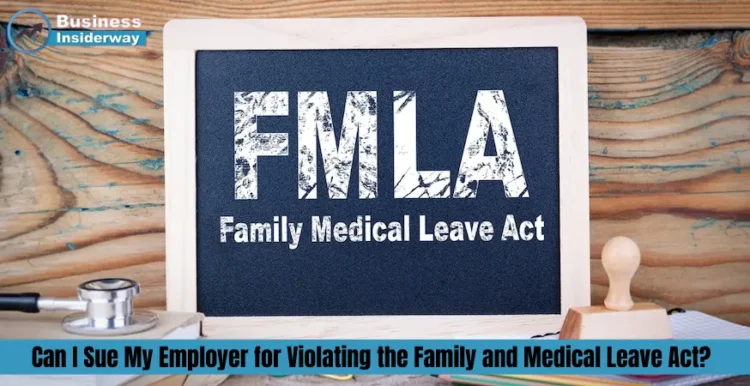Are you facing a situation where your employer has violated the Family and Medical Leave Act (FMLA) and wondering if you have any legal action?
The FMLA gives eligible employees specific job-protected leave rights, and if your employer violates those rights or retaliates against you for exercising them, you may have grounds for legal action. But what should you do, and where do you start?
Santa Ana medical leave lawyers gave insights about medical leave claims and what you can do when your employer violates these rights. Let’s explore the eligibility criteria for filing an FMLA lawsuit, the different types of FMLA violations that could occur, and how to gather evidence to support your case.
Eligibility for FMLA Lawsuit
To determine your eligibility for filing a lawsuit under the Family and Medical Leave Act (FMLA), you need to meet certain criteria set by the law. The FMLA provides eligible employees with up to 12 weeks of unpaid leave for specific family and medical reasons.
Your employer must have at least 50 employees within a 75-mile radius of your worksite. You must also have worked for your employer for at least 12 months and for at least 1,250 hours. This means that part-time employees may also be eligible for FMLA protection.
The FMLA also applies only to certain circumstances, including the birth or adoption of a child, caring for a family member with a serious health condition, or when you’re unable to work due to your own serious health condition.
Types of FMLA Violations
If you find that your employer has failed to comply with the FMLA requirements, various types of violations may have occurred. Understanding these violations is necessary for determining whether you have a valid case against your employer.
One common violation is when your employer denies or interferes with your right to take FMLA leave. This could include refusing to grant your request for leave, discouraging you from taking leave, or retaliating against you for taking leave.
Another violation is when your employer fails to reinstate you to your previous position or an equivalent position after you return from FMLA leave. Your employer is required to return you to the same or a similar position with the same pay, benefits, and working conditions.
You may also be in violation of the FMLA if your employer fails to provide you with the necessary notice or information about your rights under it. They’re required to inform you about your eligibility for FMLA leave and provide you with the necessary forms and guidelines.
Gathering Evidence for Your Case
Start gathering evidence for your case by documenting any instances of FMLA violations by your employer. You will need this evidence to prove that your employer has violated your rights under the Family and Medical Leave Act (FMLA).
Keep a detailed record of any conversations, meetings, or interactions related to your FMLA leave. Keep a record of the date, time, place, and names of all individuals involved in each incident. Be sure to include any relevant details, such as what was said or promised during these conversations.
You should also save any written documentation you may need to support your claim, including emails and letters. These materials can serve as tangible evidence of your employer’s actions or lack thereof.
Steps to Take Before Filing a Lawsuit
Now that you have gathered evidence of your employer’s FMLA violations, let’s discuss the steps you should take before filing a lawsuit. Taking the appropriate steps won’t only strengthen your case but also increase your chances of a favorable outcome.
Consider reaching out to your employer to address the issue directly. It’s possible that the violation was unintentional or a result of a misunderstanding. By discussing the matter with your employer, you may be able to resolve the issue without resorting to legal action.
If speaking with your employer doesn’t lead to a satisfactory resolution, the next step is to file a complaint with the Department of Labor (DOL). The DOL is responsible for enforcing the FMLA and investigating violations. You can file a complaint online, by mail, or in person at your nearest DOL office.
While the DOL investigates your complaint, if there are any further instances of FMLA violations, you need to document them. Keep a detailed record of dates, times, and descriptions of the violations; this includes any conversations or interactions related to the matter. This documentation will serve as valuable evidence in your case.
What to Expect During the Legal Process
During the legal process, you can anticipate a series of steps and proceedings that will determine the outcome of your FMLA lawsuit. Once you file your FMLA lawsuit against your employer, the first step is usually the pretrial conference. The purpose of this conference is to discuss the case, exchange information, and potentially reach a settlement.
If a settlement can’t be reached during the pretrial conference, the next step is discovery. Discovery is the process of gathering evidence and information to support your claims. This can involve document requests, interrogatories (written questions submitted to the opposing party), depositions (oral questioning under oath), and expert witness testimonies.
After the discovery phase, both parties may file motions, such as a motion for summary judgment, to seek a decision from the court without going to trial. If the case does proceed to trial, you should be prepared to present your evidence and witnesses to support your claim.
Once the trial is concluded, the judge or jury will render a verdict. If you’re successful, the court may order your employer to provide remedies such as back pay, reinstatement, or other damages. But if you aren’t satisfied with the verdict, you have the right to appeal the decision to a higher court.
Conclusion
You may be able to file a lawsuit against your employer if you believe they violated the Family and Medical Leave Act (FMLA). But before taking legal action, gather sufficient evidence and follow the necessary steps.
It’s important to be prepared for the legal process and understand what to expect.
Consider consulting with an attorney who specializes in employment law to determine the best course of action for your situation.














